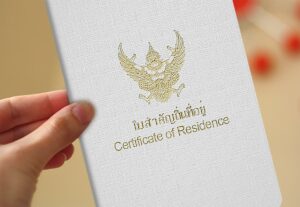Last Will and Testament in Thailand. A Last Will and Testament is a critical legal document that ensures a person’s property and wishes are respected after death. In Thailand, succession law is detailed and formal, governed by the Civil and Commercial Code (CCC), Book V (Sections 1599–1755). Without a valid will, assets are distributed by default under Thai intestacy rules, which may not align with the deceased’s intentions.
Both Thai nationals and foreigners with assets in Thailand should understand how wills operate under Thai law. This article explores the legal framework, types of wills, formal requirements, probate procedure, and common challenges.
1. Legal Framework
Succession in Thailand is governed by the CCC. Key principles:
-
Section 1599: Succession begins at death.
-
Section 1600: Heirs inherit according to will or, if absent, by statutory order.
-
Section 1603: Testamentary freedom is recognized, but subject to formalities.
-
Sections 1655–1672: Outline types of valid wills.
-
Sections 1711–1715: Detail probate and administration.
2. Who Can Make a Will in Thailand?
The law requires:
-
Age: At least 15 years old.
-
Capacity: Must be of sound mind.
-
Nationality: Both Thai citizens and foreigners may make wills covering property in Thailand.
👉 Foreigners often prepare a separate Thai will for assets located in Thailand to avoid cross-border complications.
3. Forms of Wills Recognized by Thai Law
Thai law provides flexibility, but strict formalities apply. The main forms are:
A. Will Made in Writing Before Witnesses (CCC Section 1656)
-
Most common type.
-
Must be signed by the testator in the presence of two witnesses.
-
Witnesses must also sign.
B. Holographic Will (CCC Section 1657)
-
Entirely handwritten by the testator.
-
Must be dated and signed.
-
Cannot be typed or partly printed.
C. Public Document Will (CCC Section 1658)
-
Declared to a public officer (district registrar).
-
Recorded by the officer in front of witnesses.
-
Provides strong validity and official recognition.
D. Secret Document Will (CCC Section 1660)
-
Signed, sealed by the testator, and handed to a public officer in front of witnesses.
-
Rarely used in practice.
E. Oral Will (CCC Section 1663)
-
Valid only in emergencies, such as imminent death.
-
Requires at least two witnesses who later testify in court.
4. Essential Contents of a Will
A will should clearly state:
-
Testator’s personal details (name, ID/passport, address).
-
Declaration that it is the Last Will and Testament.
-
Appointment of heirs and division of assets.
-
Appointment of an executor.
-
Date and place of signing.
-
Witness signatures (if required).
5. Executors and Estate Administration
The executor ensures the wishes of the testator are carried out. Duties include:
-
Collecting and securing the estate.
-
Paying debts and taxes.
-
Distributing assets to heirs.
If no executor is appointed, or if the executor declines, the court may appoint an administrator.
6. Probate in Thailand
The probate process validates the will and empowers the executor. Steps include:
-
Filing a petition in the Thai court with the will and death certificate.
-
Court hearing to verify the will’s validity.
-
Appointment of executor by court order.
-
Inventory of assets and debts.
-
Settlement of liabilities.
-
Distribution of remaining estate.
Timeframe: 6–12 months, depending on complexity and disputes.
7. Statutory Heirs (If No Will Exists)
If a person dies intestate, Thai law distributes assets to statutory heirs in order of priority:
-
Descendants (children, grandchildren).
-
Parents.
-
Full-blood siblings.
-
Half-blood siblings.
-
Grandparents.
-
Uncles and aunts.
A surviving spouse has rights in addition to these heirs, usually a one-half share if descendants exist.
8. Inheritance of Property by Foreigners
-
Land: Foreigners generally cannot inherit land. If land is inherited, it must be sold within a year (with proceeds going to the heir).
-
Condominiums: Foreign heirs may inherit condo units, subject to the 49% foreign quota rule.
-
Movable property: Bank accounts, vehicles, and personal property may be freely inherited.
9. Common Problems and Pitfalls
-
Improper execution: Missing witness signatures or incorrect format invalidates the will.
-
Conflicting wills: Multiple wills (e.g., in different countries) can cause disputes.
-
Ambiguity: Vague wording leads to litigation among heirs.
-
Failure to update: Life changes (divorce, remarriage, new children) require updating the will.
-
Foreign language issues: Wills in English must be translated into Thai for court use.
10. Special Considerations for Foreigners
-
Multiple jurisdictions: Best practice is to create a Thai will for Thai assets and a separate will for foreign assets.
-
Bank accounts: Thai banks release funds only after probate approval.
-
Marriage with Thai spouse: Clarify rights to jointly held property.
-
Inheritance tax: Applies to estates exceeding 100 million baht, though spouses and descendants enjoy exemptions.
11. Best Practices in Drafting a Will
-
Consult a licensed Thai lawyer to ensure compliance with the CCC.
-
Use clear and specific wording for asset distribution.
-
Appoint a capable and trusted executor.
-
Ensure witnesses are competent and not beneficiaries.
-
Store the original will securely.
-
Review and update regularly after major life events.
12. Practical Example
A German retiree living in Chiang Mai owns:
-
A condominium in his own name.
-
A car and Thai bank accounts.
He prepares a Thai will leaving the condo to his daughter, the car to his son, and appoints a Thai lawyer as executor. The will is signed before two witnesses and properly dated. After his passing, the executor applies for probate, settles his debts, and transfers the assets as instructed. This avoids the uncertainty of intestate succession and ensures his heirs receive assets smoothly.
Conclusion
A Last Will and Testament in Thailand provides legal certainty and peace of mind for both Thai nationals and foreigners with property in the country. By complying with the Civil and Commercial Code’s requirements, appointing an executor, and ensuring proper probate, individuals can secure their assets and reduce disputes among heirs.
For foreigners, a Thai will covering local assets is highly recommended to avoid conflicts with foreign law and streamline estate administration.
Disclaimer: This article provides general information about succession law in Thailand. It does not constitute legal advice. For case-specific guidance, consult a licensed Thai lawyer experienced in wills and probate.
You might also enjoy

Personal Data Protection Act
Personal Data Protection Act. The rapid expansion of digital commerce,

Thai Business Partnership
A Thai business partnership is one of the most commonly

Thailand Permanent Residency
Thailand Permanent Residency (PR) is a highly sought-after immigration status


